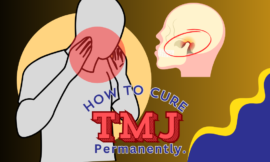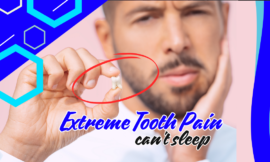A mouth swab drug test is a common screening method used to detect recent drug use. Many employers, law enforcement agencies, and medical institutions use this test because it is non-invasive and provides quick results. Unlike urine or blood tests, a saliva drug test can detect substances used within a short timeframe, typically within the past 24 to 48 hours.
People often search for ways to pass a saliva drug test, especially if they have a screening scheduled on short notice. Since this test primarily detects recent use, it is possible to pass a mouth swab test within 12 hours with the right strategies. Understanding how these tests work and the best detox methods can significantly increase the chances of passing.
Understanding Mouth Swab Drug Tests
A mouth swab drug test, also known as an oral fluid drug test, is designed to detect drug metabolites in saliva. The test involves swabbing the inside of the mouth, usually the cheeks, gums, or under the tongue, to collect a saliva sample. The collected sample is then analyzed for the presence of drugs or their metabolites.
Saliva tests are widely used in workplace drug screenings, roadside DUI checks, probation monitoring, and legal cases. They are preferred because they are easy to administer, difficult to cheat, and can provide immediate results. Unlike urine or blood tests, which detect substances in the body for longer periods, saliva tests are mainly used to identify recent drug use.
Drugs commonly tested in a mouth swab screening include:
- THC (marijuana) – detectable for up to 24 hours after use
- Cocaine – detectable for up to 2 days
- Methamphetamine – detectable for 1 to 3 days
- Opiates (heroin, morphine, oxycodone) – detectable for 24 to 48 hours
- Benzodiazepines – detectable for up to 3 days
- Alcohol – detectable for 12 to 24 hours
Accuracy is one of the main concerns with saliva drug tests. While these tests are generally reliable, they can sometimes produce false positives or negatives due to factors such as diet, oral hygiene, and the test’s sensitivity. Factors like food particles, mouth dryness, and saliva composition can also affect results.
How Long Do Drugs Stay in Saliva?
The detection window of a mouth swab test depends on several factors, including the type of drug, frequency of use, metabolism, and individual health conditions. While some drugs clear out of saliva within hours, others can remain detectable for a longer period.
Here is an estimated detection time for different substances:
- Marijuana (THC): 12 to 24 hours for occasional users, up to 72 hours for frequent users
- Cocaine: 1 to 2 days
- Methamphetamine: 1 to 3 days
- Opiates: 24 to 48 hours
- Benzodiazepines: 1 to 3 days
- Nicotine: Up to 48 hours
- Alcohol: 12 to 24 hours
Factors that can influence how long drugs stay in saliva include:
- Hydration levels – Drinking more fluids may help flush out toxins faster.
- Oral hygiene – Regular brushing, flossing, and mouth rinsing can help reduce drug residue.
- Metabolism rate – People with faster metabolisms process substances quicker.
- Frequency of drug use – Occasional users clear drugs faster than habitual users.
- Saliva production – More saliva flow can help eliminate toxins faster.
Understanding the detection window is important when preparing for a saliva drug test. If someone has used substances recently, they should take immediate steps to cleanse their mouth and increase saliva flow to reduce the chances of a positive result.
Best Ways to Pass a Mouth Swab Test in 12 Hours
Passing a saliva drug test on short notice requires quick action. Since drugs remain in saliva for a limited time, increasing saliva flow, maintaining good oral hygiene, and using detox methods can improve the chances of passing. Here are some of the most effective ways to cleanse the mouth before a test.
Natural Detox Methods
- Drink plenty of water – Staying hydrated helps flush toxins from saliva. Sipping water frequently can also prevent mouth dryness, which may reduce drug concentration.
- Increase saliva production – Chewing gum, sucking on sour candies, or eating citrus fruits can stimulate saliva flow and dilute drug traces.
- Eat fatty foods – Some drugs, like THC, bind to fat molecules. Eating fatty foods may help remove lingering residues in the mouth.
- Practice good oral hygiene – Brushing teeth, flossing, and scraping the tongue can help remove traces of drugs.
- Rinse frequently – Swishing water, hydrogen peroxide, or mouthwash multiple times before the test can help cleanse the mouth.
Using Detox Products
Some specialized detox products claim to help pass a saliva test by neutralizing drug residues in the mouth. These include:
- Detox mouthwashes – Specially formulated detox mouthwashes can temporarily mask drug traces. Popular options include Toxin Rid Rescue Wash and Ultra Klean Mouthwash.
- Hydrogen peroxide rinse – A diluted solution of hydrogen peroxide can help cleanse the mouth. Many people use it as a last-minute solution before the test.
- Detox gums and sprays – Some detox gums and sprays claim to cleanse saliva temporarily, but their effectiveness varies.
Home Remedies & Quick Fixes
People often turn to household ingredients to help cleanse their mouths before a test. Some popular home remedies include:
- Lemon juice and water – Drinking lemon juice mixed with water may help neutralize toxins.
- Apple cider vinegar – Rinsing with diluted apple cider vinegar may help cleanse saliva.
- Baking soda rinse – Some believe that swishing a baking soda and water mixture can neutralize drug residues.
- Alcohol-based mouthwash – While regular mouthwash may help, using an alcohol-based one may be more effective at breaking down drug particles.
No method guarantees success, but combining several techniques may improve the chances of passing.
Common Myths & Misconceptions
Many people search for ways to pass a saliva drug test, but not all methods work. Some common myths include:
- “Drinking excessive water will clear drug traces instantly.” While staying hydrated can help, it does not guarantee that all drug residues will be eliminated.
- “Chewing gum alone can help pass a saliva test.” While gum increases saliva flow, it does not remove drug metabolites.
- “Eating strong-smelling foods like garlic or coffee will mask drugs.” These foods may temporarily change mouth chemistry, but they do not remove drug traces.
- “Mouth swab tests are easy to cheat.” Unlike urine tests, saliva tests are harder to manipulate since they detect recent drug use.
While some home remedies may help, relying on myths can lead to unexpected results.
Legal & Workplace Considerations
Saliva drug tests are commonly used in workplaces, roadside checks, and legal cases. Employees and individuals should be aware of their rights when facing a drug test.
- Workplace drug tests – Many companies conduct random saliva drug tests to ensure a drug-free environment. Employees should review their company’s drug policies.
- Roadside drug testing – Law enforcement officers use saliva tests to check for impaired driving. Refusing a test may result in legal consequences.
- Legal rights for drug testing – In some cases, individuals have the right to request a second test if they believe the results are inaccurate.
- Risks of failing a mouth swab test – A failed drug test can lead to job loss, legal penalties, or other consequences, depending on the situation.
Understanding these legal aspects can help individuals make informed decisions when facing a drug screening.
Conclusion
Passing a mouth swab drug test in 12 hours is possible with the right strategies. Drinking water, increasing saliva flow, practicing good oral hygiene, and using detox mouthwashes can help improve the chances of success. While home remedies and detox products may help, no method is foolproof. Understanding drug detection times and preparing in advance is the best approach to passing a saliva test.




